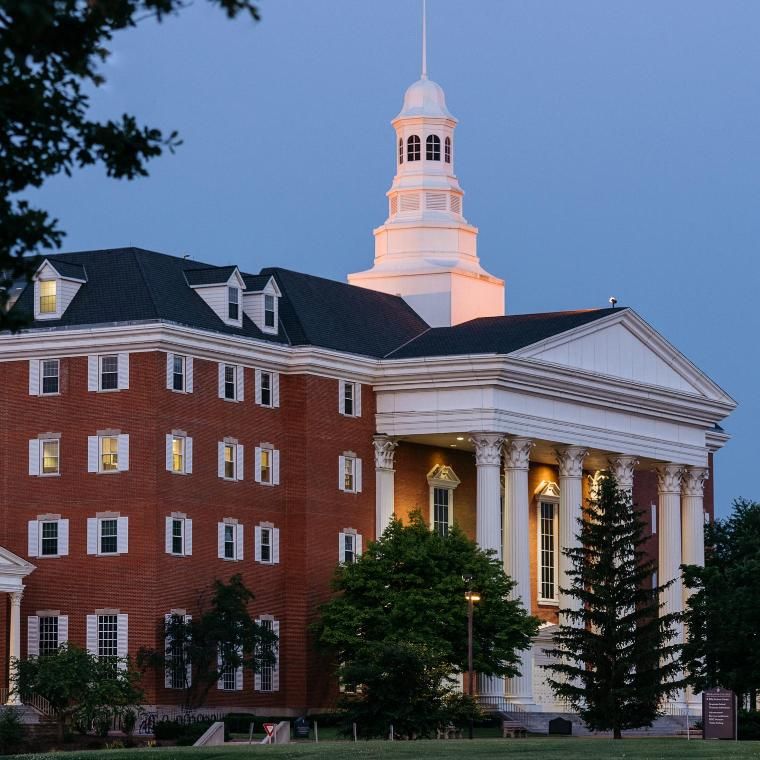Student Profiles
Wondering what a "typical" student in the MA in Humanitarian & Disaster Leadership (HDL) program looks like? The short answer is, there is no such thing as a "typical" HDL student. Our students come from a diverse array of backgrounds, interests, and career paths—even ages and life experiences. Here are a few profiles of students in our first cohort to give you a glimpse of the different paths students have taken to this program.
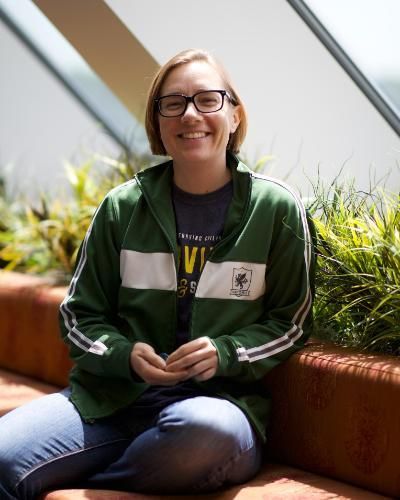
Like many members of the inaugural M.A. in HDL class, Kati brings a wealth of previous experience in humanitarian and disaster relief to the program. In this blog, Kati shares how it all began with her own experience of Hurricane Katrina.
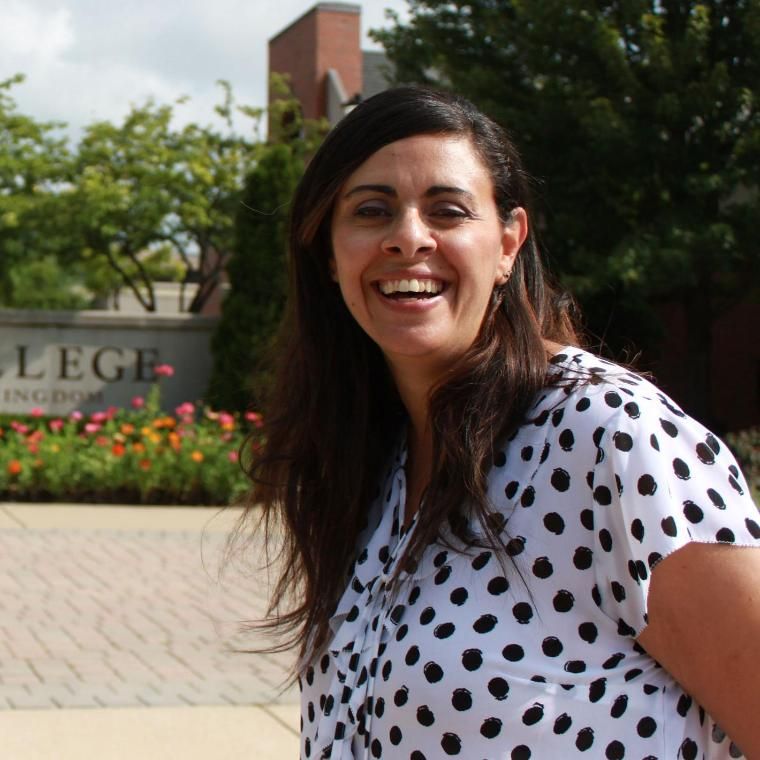
Gigi Dawood worked as an endocrinologist for 13 years after medical school when she signed up for what would turn out to be a life-altering mission trip to Greece to work with Syrian refugees. That decision began a journey that would lead her to the MA in HDL program.
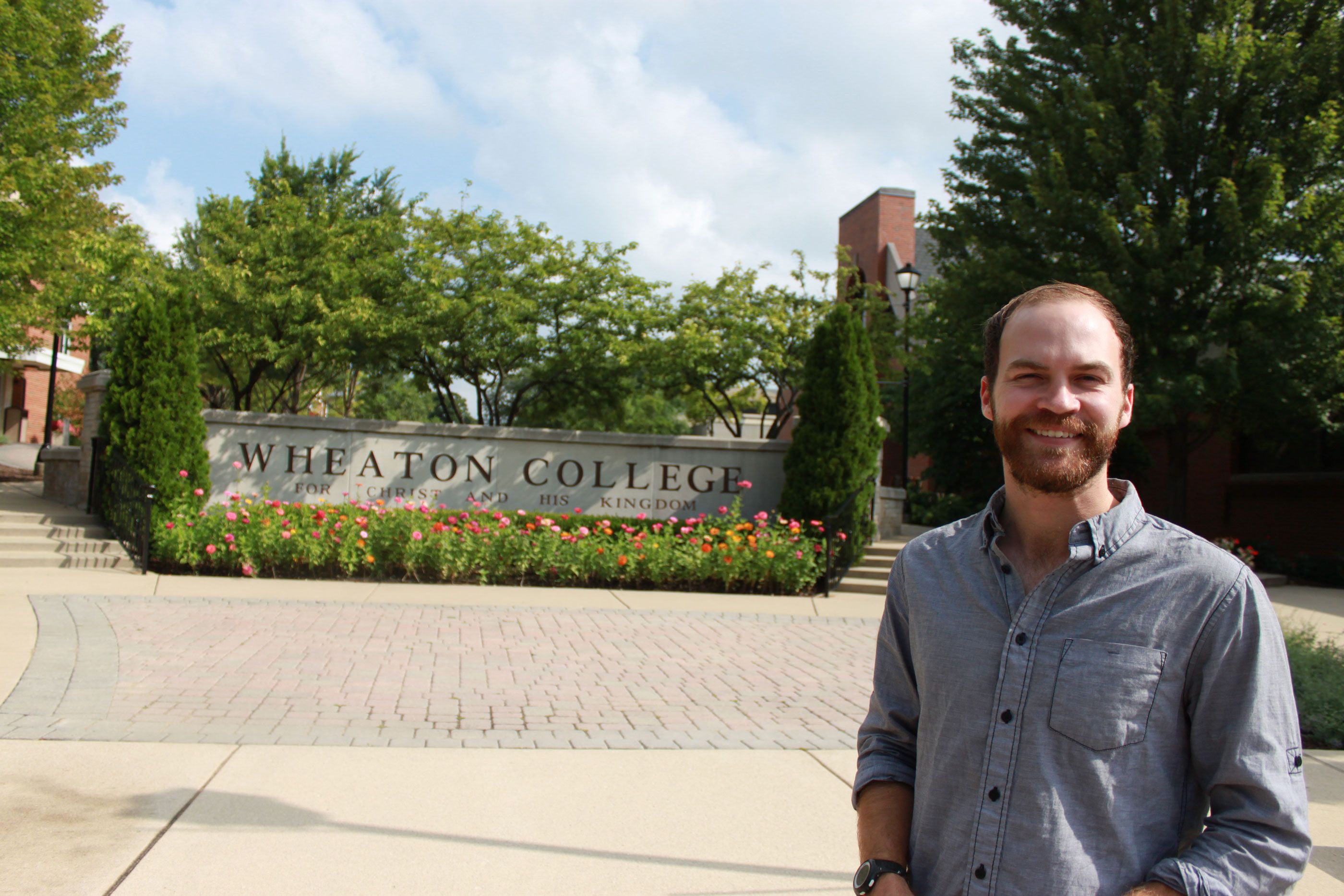
Drawing from his academic background in environmental science and experience in Wheaton College's HNGR program as an undergrad, Michael Sawyer is able to connect his concern for the environment with his compassion for the vulnerable.
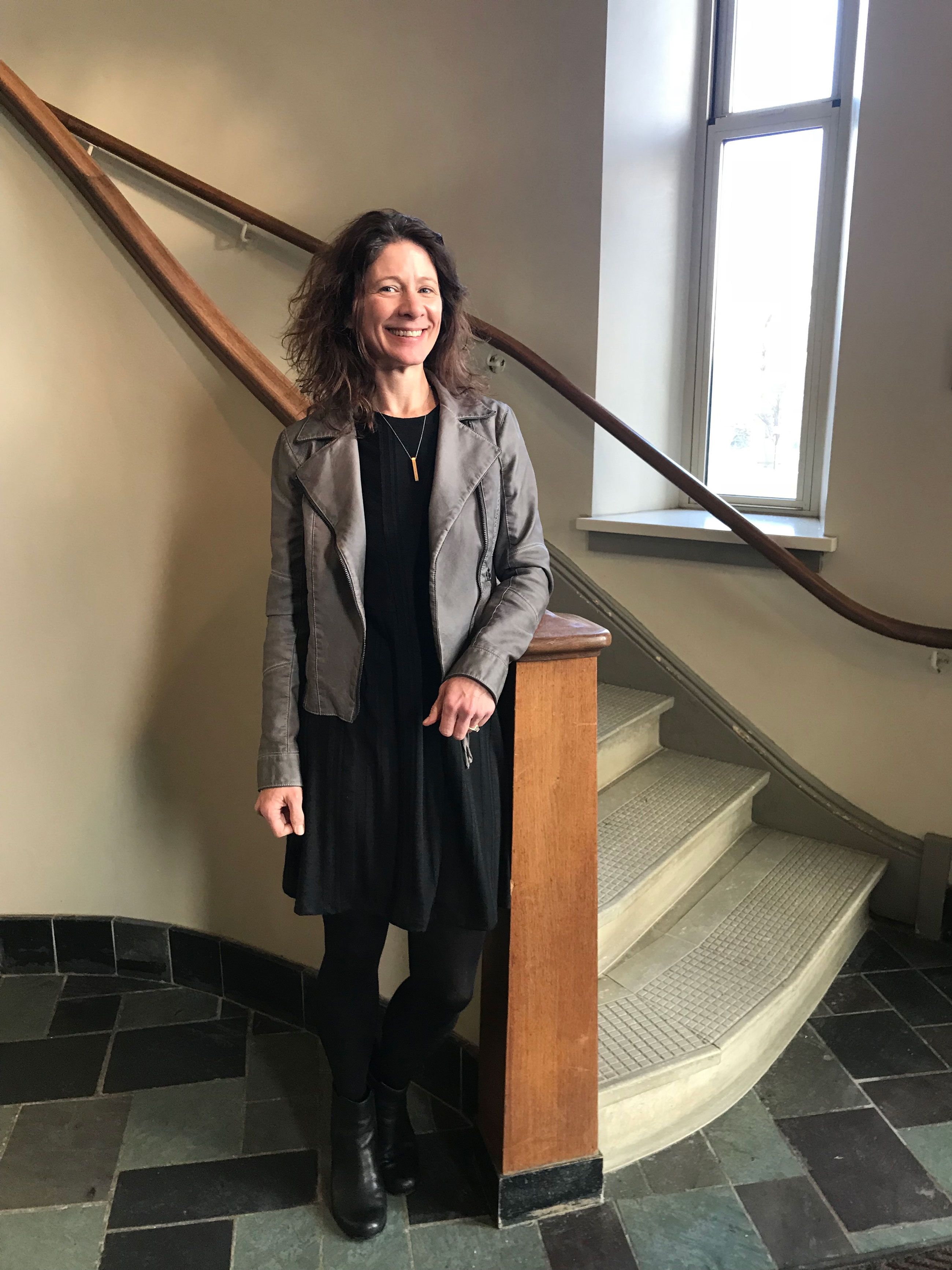
Cheryl Sorenson, co-founder of Dignity4Girls, shares about how her experience leading an NGO led her back into the classroom, and how she’s pouring what she learns in the MA in Humanitarian & Disaster Leadership right back into the organization.
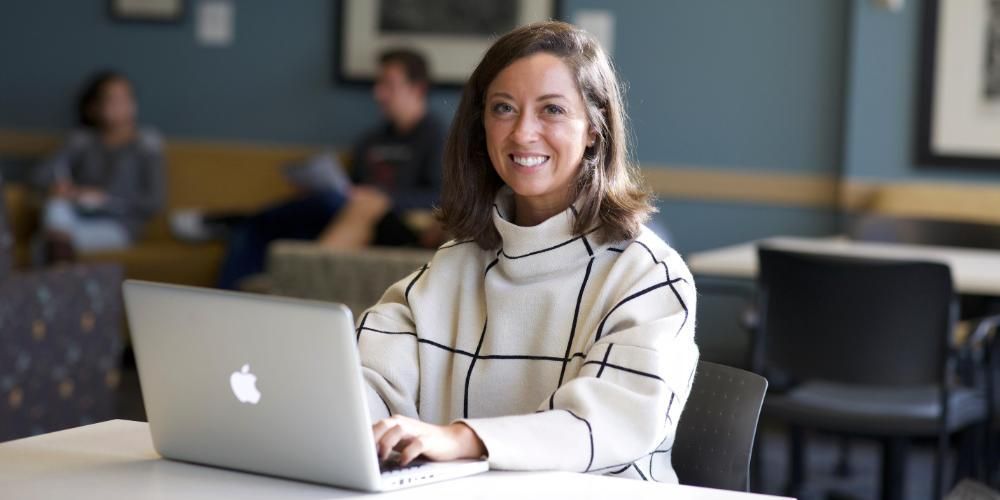
HDL student Dyer Bowers shares her reflections on recent headlines about immigration and refugees, and speaks about the importance of matching a passion to help with the right qualifications.
Career Paths
Although disaster relief and humanitarian aid are relatively new to vocational conversations, they are quickly developing into significant professional fields as disasters and humanitarian crises affect an increasing number of people worldwide. Since the inaugural cohort in 2018, we have had faithful professionals enter the field of humanitarian and disaster work domestically and globally. In addition to the profiles of our alumni above, below are some stories, advice, and resources from Wheaton College alumni who are leaders in related field.
Here’s what they had to say…
Rev. Dr. Laurie Kraus directs Presbyterian Disaster Assistance, the national and international response agency for the Presbyterian Church (USA).
I was a pastor in a church in Miami, Florida, when Hurricane Andrew (August 1992, category 5) struck our communities. About a third of our congregation had damage and experienced dislocation. I volunteered to serve on the regional committee that was organizing the Presbyterian presence in the interfaith disaster response. I was made chair. We ran a 3-year disaster response program, including rebuilding, hosting volunteer work teams and long-term volunteers, unmet needs, vacation bible school for a farm work community in the affected zone, and unmet needs committees. After that response was complete, I was invited to serve on a newly formed National Response Team for Presbyterian Church (USA), volunteering a month a year to support/serve with disaster-afflicted communities throughout the US.
Mostly on the job training; also, ICISF training/certification, trauma response training, compassion fatigue and resiliency training/certification; trainings with Church World Service and FEMA, and advanced spiritual care and trauma training and certification with the American Red Cross.
Serve with local VOAD/COAD groups, get involved in state/county emergency management; volunteer with faith-based responders who do reputable field work.
FEMA, Red Cross, and Church World Service all have on-line training protocols that are certifiable; compassionunlimited.com and International Association of Trauma Professionals (IATP) have online and regional trainings as well.
Roger Sandberg Jr., Director of Emergency Relief & Global Security with Medical Teams International
While attending Wheaton College as an undergraduate student I was able to spend the summer between my Junior and Senior year in Sudan. This was at the height of the North-South civil war and I was exposed to the Non-Government Sector along with an incredible cross-cultural experience. The relief work that I was part of was an embodiment of sharing the Gospel through practical expressions of love and service.
I studied business-economics and Bible-theology at Wheaton College. I received a Masters in Business Administration from Rollins College. I continue to be a life-long learner and am a firm believer in experiential learning.
Connect with someone who is already working in your field of interest. Seek opportunities where you can learn and be mentored.
Read! Read as much as you can. Read the news, The Economist, Atlantic, NY Times, Wall Street Journal, Al-Jazeera, Vox, Vice. Read history, read theology, read about management. Read about other cultures and travel!
Matt Marietta, Fire Marshal, city of Milton, GA
I majored in philosophy at Wheaton, and worked for public safety part of that time. By the time I graduated, I was volunteering with DuPage Emergency Management Agency, a trained weather spotter, and earned my Emergency Medical Technician certification through the College of DuPage. When I graduated, I became a police officer in metro Atlanta (perfect career for a philosophy major, yes?).
During the 17 years since graduating from Wheaton, I have pursued a fairly broad public safety career. This has included service in patrol, as a vice detective, motorcycle cop, firefighter, EMT, and police chief, all the while pursuing graduate education through Georgia State University in political science. Incidentally, due to the blessing of a Wheaton undergrad experience, I was able to go on to a M.A. and Ph.D. in political science at Georgia State while working full time (I was able to take advantage of tuition reimbursement programs offered through several local governments).
Incidentally, one of my three areas of concentration in the doctoral program was international relations. While this is something of an eyebrow-raising academic choice for a local emergency manager, I have been able to draw lessons from the international humanitarian context into my job-related research on the local side. My professional experience in local disaster response informed my dissertation, which focused on pulling the local emergency management experience into the international humanitarian intervention (e.g. military intervention in failed state situations) context.
Georgia State also has an affiliated graduate certificate in disaster management, and given my calling in public safety, I pursued this as part of the program. The adviser led me to join the International Association of Emergency Managers and earn my CEM (Certified Emergency Manager) through them. Incidentally, my career path has also required formal academy training and several additional certifications in the police officer and firefighter career fields. This non-college education gave me invaluable insight into how emergency management happens at the grassroots level where people really are in need
Always be willing to get down in the dirt and do the hard work, to learn new things, and be ready to say “yes” to new opportunities to serve as doors are opened for you. Never forget that it is about serving people, sometimes in their hour of greatest physical or emotional need.
Despite the fact that we have a tendency to only feel “useful” when we are dealing with big, catastrophic incidents of the kinds that make the 24-hour news cycle, more often than not, service in the emergency/humanitarian field it is about helping people in small ways.
As I have gotten older, God has shown me that true service in the small, seemingly mundane situations can often have a tremendous impact in the long run (especially if we believe that we are living out a faith-based, God-given calling with an impact far beyond ourselves and our limited understanding).
From the career perspective of a local emergency manager, I would start out with the International Association of Emergency Managers. They have links to educational programs, certification prep courses, conferences or classes, and testing/application for Associate Emergency Manager (entry level) and Certified Emergency Manager programs. CEM is generally a basic expectation for a manager or executive in this field. Also, FEMA's Emergency Management Institute has a wide array of online programs. Trade magazines in not only emergency management, but also firefighting are also useful. Because of the job responsibilities, emergency management typically has more in common with the fire service and draws from this career field very heavily.
Jim McGee, CEO, American Red Cross, Central California Region
After a 20-year career in the corporate world, this opportunity surfaced. I was impressed with the many people I met who fuel the Red Cross mission, one that has had incredible impact here in the states and around the globe. After learning more, I saw this was an incredible opportunity to use my gifts and experience to help lead the Red Cross in my home state of California.
Given that the Red Cross is a large, national organization that is locally led, my experience working in large organizations (The Walt Disney Company, Anthem), several years as a business consultant, and business school, has helped me understand the complexity and dynamics of large organizations. Likewise, my experience serving and volunteering is equally important, as Red Cross volunteers represent 90% of our workforce. The love I have for helping others serve with passion and have a real impact in their communities is an incredible reward.
Jump in and get the experience! Join an organization that you care about and find a team that will help you grow and develop. In the right opportunity with the right team, there is so much to be learned in a short period of time. Don’t wait for the perfect opportunity. For young professionals, so much of it is the person you’ll be working for and learning from.
We recommend three books for our team members. Seth Godin’s Tribes emphasizes how imperative it is to build tribes of folks loyal to your cause in a volunteer-centric organization. Patrick Lencioni’s The Advantage is a must-read for leaders and members of my senior team. The entire premise is that healthy organizations (not just financially healthy) start with a healthy leadership team. Lencioni is a great writer with a simple yet strong view on the characteristics of the best organizations. We also ask each new team member to read and take Gallup’s Strength Based Leadership Assessment. A team that more strongly leverages our strengths helps us not only get better results, but stronger employee engagement results as individuals are working in areas that bring them great energy.
